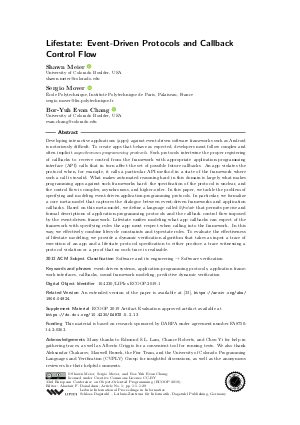LIPIcs.ECOOP.2019.1.pdf
- Filesize: 0.9 MB
- 29 pages

 Creative Commons Attribution 3.0 Unported license
Creative Commons Attribution 3.0 Unported license






Feedback for Dagstuhl Publishing